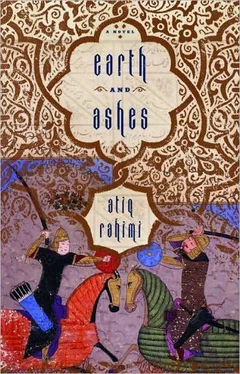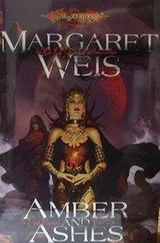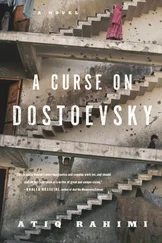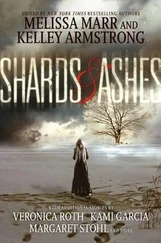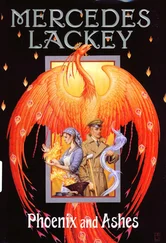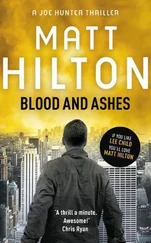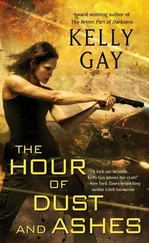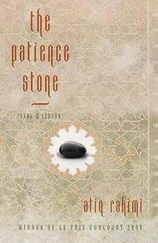The soldier says goodbye to Mirza Qadir, and walks past you.
Yassin digs with his jujube stone at a footprint left by the soldier.
The ant is no longer there. Ant, mud and naswar are stuck to the boot of the departing soldier.
Mirza Qadir abandons his spot behind the scales and withdraws to a corner of the shop to perform his midday prayers.
It has been a week now since you’ve been to the mosque or prayed. So, have you forgotten about God? No, your clothes are not in a fit state for prayer. This same pair of clothes has been on your back day and night for a week. Yet, God is merciful…
Whether you pray or not, the reality is that God isn’t concerned with you. If only he’d turn his attention to you for a moment, if only he’d come to your side… No, God has forsaken his subjects. If this is how he looks after his subjects, you yourself, in your absolute ruin, could be lord of a thousand worlds!
God help me! Dastaguir you’re committing blasphemy. Damn the temptations of Satan. Damn you.
Occupy your thoughts with something else. But what?
Aren’t you hungry? Spit out your naswar.
‘My good man, your tongue will wear out. Your insides will wear out. For days naswar has been your bread and water.’
You hear the words Murad’s mother would say to you before you sat down to eat. When Murad was in prison, you would make up excuses to avoid coming to the table. Naswar under your tongue, you’d disappear into the little garden saying that you wanted to catch the last rays of daylight or that you had weeding to do. You would sit among the plants, and open your laden heart to the earth and flowers. Your wife’s voice would boom out into the courtyard declaring that, after your death until the Day of Judgement, your mouth would fill with earth and your body would turn to earth from which a tobacco field would grow. In Hell you would burn in an inferno of tobacco leaves… for ever.
You have yet to face Judgement Day and you are already burning. Who needs the flames of Hell and a bonfire of tobacco?
You spit out your naswar. You take a piece of bread out of the bundle and share it with Yassin.
Your teeth aren’t able to chew the bread. No, they are. It’s the bread that is at fault. It is days old and hard. If there’s one thing that’s still all right, it’s your teeth. You have teeth, but no bread. If only you had the right to choose: teeth or bread. Would that be free will?
You take an apple from the bag and recommence your conversation with God. You request that He lower himself from the heavens. You untie and spread out the apple-blossom scarf as if to invite him to share your dry bread. You want to ask him what it is you have done to deserve such a destiny.
‘The soldier says the Russians destroyed the village.’
Mirza Qadir comes between you and God. You bless him for asking you a question that prevents you from continuing your argument with God. You ask for divine mercy and respond to Mirza Qadir.
‘Don’t ask, brother. They didn’t spare a single life… I don’t understand why God saw fit to punish us… The village was reduced to dust.’
‘Why did they attack?’
‘My friend, in this country, if you wonder why something happened, you have to start by making the dead talk. What do we understand? A while back a group of government troublemakers came to our village to enlist fighters for the Russians. Half the young people fled, the other half hid. On the pretext of searching the houses, the government soldiers wrecked and looted everything. In the middle of the night, men from the next village arrived and killed the government soldiers… The next morning they left with the men who had hidden to avoid serving under the red flag… Not even a day had passed before the Russians came and surrounded the village. I was at the mill. Suddenly, there was an explosion. I ran out. I saw fire and clouds of dust. I ran in the direction of my house. Why wasn’t I killed before I reached home? What wrong had I committed to be condemned to witness…’
Your throat is seized with sobs. Tears well in your eyes. No, they are not tears. Your grief is melting and overflowing. Let it flow!
Mirza Qadir, stunned into silence in the entrance of his shop, looks like a portrait; as if he has become part of the scene on the wall behind him.
‘I ran towards the house through the dust and fire. Before I arrived, I saw Yassin’s mother. She was running, completely naked… She wasn’t shouting, she was laughing. She was running about like a madwoman. She had been in the bathhouse. A bomb had hit and destroyed it. Women were buried alive and died. But my daughter-in-law… If only I’d been blind and hadn’t seen her dishonoured. I ran after her. She vanished into the smoke and flames. I came to the house, not knowing how I’d found it. There was nothing left… The house had become a grave. A grave for my wife, a grave for my other son, his wife and their children…’
A sob constricts your throat. A tear drops from your eye. With the loose flap of your turban, you wipe it away:
‘Only my grandson survived. But he doesn’t understand what I say. I feel like I’m speaking to a stone. It tears me to pieces… It’s not enough to talk, brother. If your words aren’t heard, those words turn to tears…’
You hug Yassin’s head against your body. The child raises his eyes and looks at you. He stands and calls out, ‘Grandfather’s crying. My uncle’s dead, Mummy’s gone… Qader’s dead, Grandma’s dead!’
Each time Yassin sees you crying, he repeats these words. Each time, he goes on to describe the bombing, miming it with his hands:
‘The bomb was huge. It brought silence. The tanks took away people’s voices and left. They even took Grandfather’s voice away. Grandfather can’t talk anymore, he can’t tell me off…’
The child laughs and runs towards the guard’s hut.
You call to him. ‘Come back! Where are you going?’ It’s useless. Let him play.
Mirza Qadir, who has been silent till now, as if unable to find words to lessen your suffering, mumbles something under his breath and offers you his condolences. Then he starts to speak, in a calm, measured way:
‘Venerable father, these days the dead are more fortunate than the living. What are we to do? We’re on the eve of destruction. Men have lost all sense of honour. Power has become their faith instead of faith being their power. There are no longer any courageous men. Who now remembers the story of the hero Rostam? Today, it is Sohrab, his son, who murders his very own father and, excuse the expression, screws his own mother. We are once again at the mercy of the tyrant Zohak’s snakes – snakes which feed on the minds of the young…’
He breaks off to light a cigarette, points to the scene painted on the wall and adds, ‘Actually, it is today’s youth who are Zohaks. They’re on the same path as the Devil, pushing their own fathers into a pit… and one day soon their own snakes will devour their minds.’
He gazes into your eyes. Your eyes are fixed on the entrance to the shop. The interior has become a spacious room at the far end of which your uncle sits by his water pipe. You are a child of about Yassin’s age. You sit at your uncle’s feet as he recites Ferdusi’s epic, the Book of Kings. He speaks of Rostam; of Sohrab; of Tahmina… He tells of the battle between father and son, of the talisman that saved Rostam, of the death of Sohrab… Your younger brother starts crying and rushes from the room to go and lay his head on your mother’s lap.
‘No, Sohrab is stronger than Rostam!’ he sobs.
Your mother says, ‘Yes, my child, Sohrab is stronger than Rostam.’
And you cry, too, but you don’t leave the room. In silence, with tear-filled eyes, you remain at your uncle’s feet, waiting to know whether Rostam will go on fighting after Sohrab’s death…
Читать дальше
